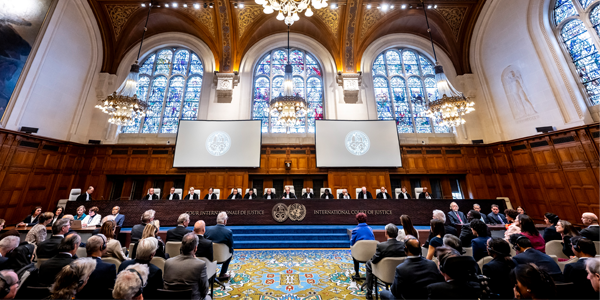Climate change is fundamentally reshaping labour markets, driving up food prices and reducing productivity worldwide, according to a new report. This presents challenges for central banks in managing price stability and responding to employment shifts.
The paper, written by Joseph Feyertag from the Centre for Economic Transition Expertise at the London School of Economics, examines how rising temperatures and the shift to a greener economy will transform employment markets.
Feyertag’s research highlights varied labour-related inflation risks, stating that “climate-driven productivity losses could be a source of price instability in climate-exposed economies”.
Specifically, the report warns that “agricultural workers affected by the growing frequency and intensity of heatwaves will face declining productivity and capacity” which “combined with yield losses, labour constraints could significantly affect food production, driving food price inflation.” Meanwhile, “labour markets with high exposure to transition risks” – in particular advanced economies – will “face increased price volatility”.
Most critically for central banks, labour market disruptions could “weaken the effectiveness of the transmission of monetary policy to the economy”, Feyertag writes. For instance, both widespread heat stress and the rapid shift toward green jobs may significantly disrupt traditional tools central banks use to manage the economy.
As extreme heat cuts productivity, especially in sectors like agriculture and construction, overall output falls and standard economic indicators – like GDP growth rates and output gaps – may become unreliable.
Previous research from the International Labour Office suggested that on a 1.5°C warming trajectory, over 2% of global working hours will be lost to high temperatures by 2030, a productivity loss equivalent to 80mn full-time jobs. Heat stress alone is projected to cause GDP losses of US$2.4tn by the end of the decade.
Meanwhile, if the fast-growing demand for green jobs makes it harder for workers to match with new roles, traditional signals central banks rely on, like employment rates and their relationship with inflation, may mask deeper issues. In particular, around labour market matching efficiency and longer-run structural changes.
Additionally, the paper warns about the reputational risks, arguing that “failure to integrate employment risks … could undermine policy credibility and effectiveness, eroding trust in central banks if they appear overly focused on inflation control or financial stability, while neglecting labour market impacts”.
Feyertag urges monetary authorities to work within their mandates to strengthen monetary and fiscal coordination. For instance, by providing “bespoke technical assistance for specific policies, to enable governments to design proactive strategies and implement necessary reforms that address structural labour market challenges”.
While in emerging markets this may look like directing credit and subsidising lending to high‑employment, climate‑resilient sectors, central banks in every region can contribute to government-led action by “improving monitoring and analysis of labour market trends”, states Feyertag.


